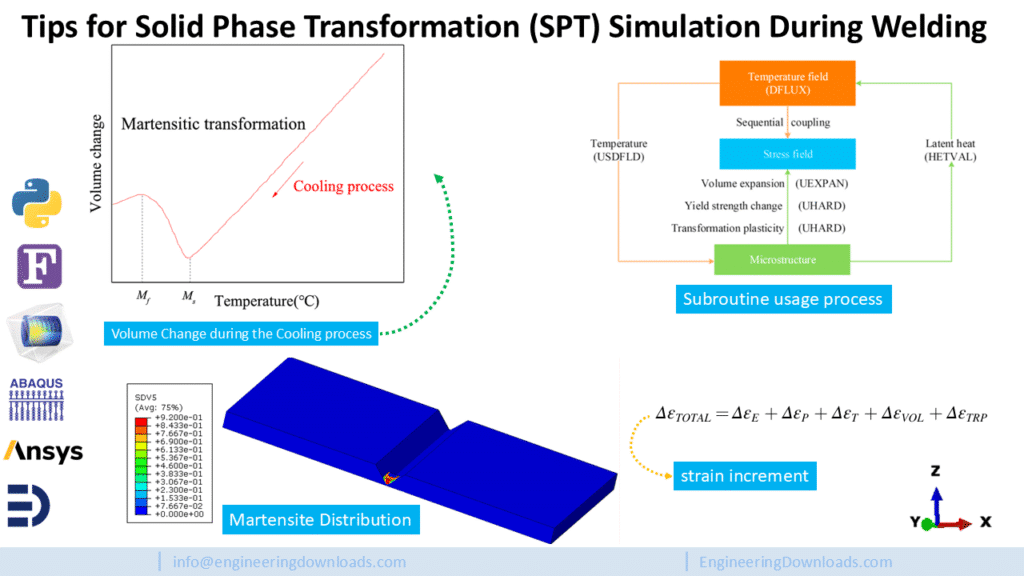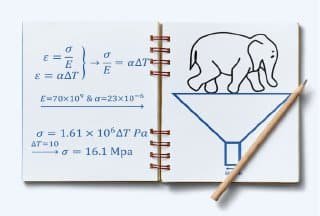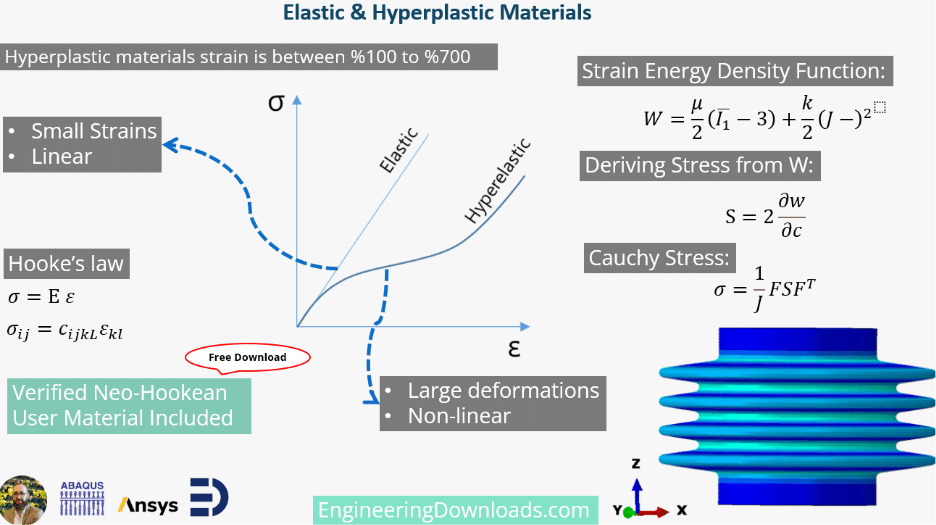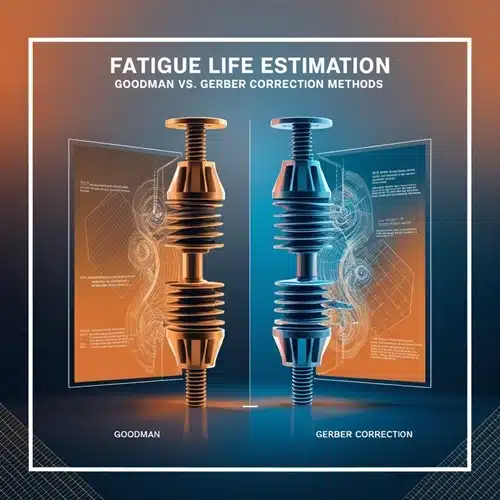Tips for FEM Analysis of Solid Phase Transformation During Welding

Welding is one of the most critical processes in mechanical and structural engineering. Beyond simply joining metals, it introduces complex thermal cycles, stress fields, and microstructural transformations that can significantly affect the performance of the welded joint. For high-temperature steels like P91, understanding these transformations is essential for predicting residual stresses, hardness distribution, and service […]
Thermal Expansion: Holding bad boys in their prison

Confession Time: I sometimes totally underestimate thermal expansion it looks so innocent on paper! 🤓 Let’s break it down: We’ve all seen that classic formula strain = ΔT × α, where α (alpha) is the material’s “how much do I expand when heated?” number. For aluminum, α is 23e-6 /°C which looks ridiculously tiny, like a […]
History of FEA Computation Time

In the past decade, processor performance has increased significantly, leading to a huge jump in computational speed. For example, the first computers, such as the ENIAC, could perform 385 multiplications per second, whereas modern processors can perform more than 11 trillion operations per second (more than 28 million times faster). In addition, computation methodologies have […]
Creep Strain vs Stress Relaxation, A practical guide for CAE users

Description Learn what creep is, how temperature and stress control creep life, and which creep models CAE tools (ANSYS, COMSOL, Abaqus and others) use. Simple equations, practical CAE workflows, ASME / code context, and industrial project examples (boilers, pressure vessels, turbines, heat exchangers). What is creep? Creep is permanent deformation that accumulates over time when […]
Foreshortening During Stent Expansion: Why It Matters in Cardiovascular Simulations

Intro When placing a stent in a coronary artery, we expect it to hold its shape and position—but did you know that stent length can shorten by up to 10% during expansion? This change, known as foreshortening, is one of the key challenges in ensuring accurate and safe stent deployment. At EngineeringDownloads.com, we’ve been running […]
Hyper Elastic vs Linear Elastic Materials: Key Differences & Applications

Intro When designing materials for engineering applications, understanding their stress-strain behavior is critical. Two fundamental categories dominate this space: linear elastic and hyperelastic materials. Here’s what you need to know and why it matters. Linear Elastic Materials: Simplicity at Small Strains Linear elastic materials follow Hooke’s Law, where stress is directly proportional to strain. Think of a spring: pull it […]
My FEM Software Journey: The Good, The Bad & The “Aha!” Moments
I’ve been quiet for a while, but for good reason—more on that later. Today, I’m sharing the messy, challenging, and surprisingly fulfilling path I took to learn commercial FEM software. If you’re navigating the same struggles in your FEM software journey—confusing GUIs, cryptic errors, trial-and-error modeling—you’re not alone. Phase 1: The “Click & Hope” Era […]
Restarting an Abaqus Analysis: A Comprehensive Guide

What Is a Restart in Abaqus Analysis? Abaqus allows you to continue a previously halted analysis by initiating a restart. This process depends on having its files from the prior analysis. These files must be specified before the initial run through the step module under “output” and “restart requests”. In the new analysis setup, reference […]
Fatigue Life Estimation: Goodman vs. Gerber Correction Methods

Fatigue life estimation is critical in engineering applications where components endure alternating stresses over time. This tutorial explores how Goodman and Gerber correction methods are used to estimate fatigue life for a rotating shaft, providing a clear understanding of their effectiveness in handling different mean stress scenarios. https://engineeringdownloads.com/wp-content/uploads/2025/06/goodman-gerber.webm Stress Analysis (FEM) […]
